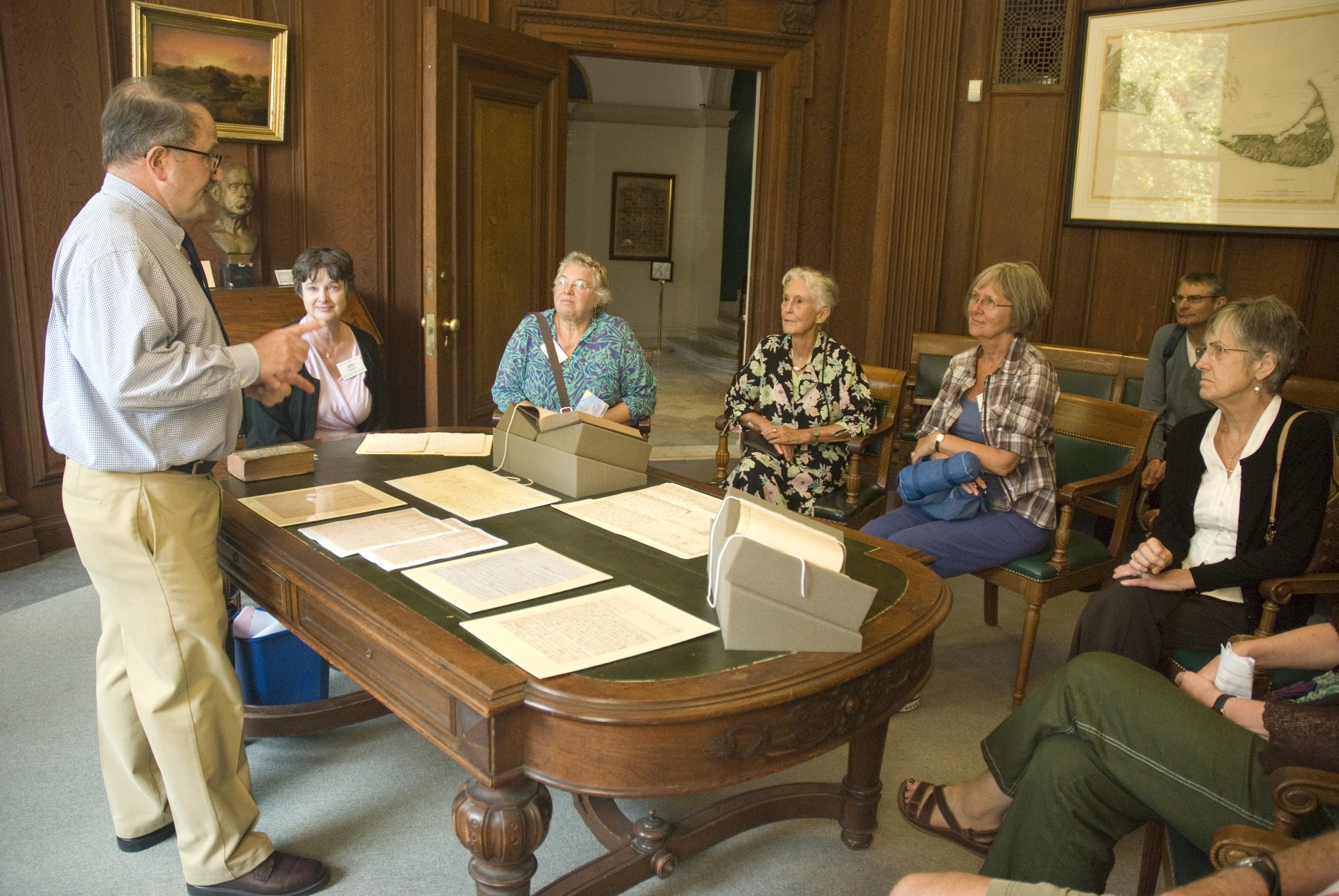By Anna Cook
Last Wednesday (9 October) current NEH-MHS long-term fellow Crystal Feimster gave a brown bag lunch talk titled “Sexual Warfare: Rape and the American Civil War.” Crystal described for us the research project that brought her to the MHS, which builds upon the material in her first book (newly-released through Harvard University Press), Southern Horrors: Women and the Politics of Rape and Lynching. In Southern Horrors, Crystal explored the fears about sexual violence in the postwar South; her current research moves back in time from Reconstruction to the war itself.
As a way of sharing the early findings of her research with us, Crystal described some of the materials she has been using to piece together the story of sexual violence in wartime and posed some of the questions that these documents leave her pondering. For example, elite white women’s diaries kept prior to and during the war express coded fears about sexual violence at the hands of Union troops, but rarely talk directly about being raped – at the same time, they use the language of invasion, and talk about Union troops entering their bedrooms. They also describe sexual violence witnessed against other women (often female slaves). Another source of information has been the approximately two hundred court marshals against Unions for sexual assault, a small percentage when compared to other conflicts that has left some historians to conclude the Civil War was a “low rape” war. However, Crystal raises questions about how accurately the court marshals reveal the situation on the ground: What rapes are being reported? When reported, which are likely to be entered into the record and brought to trial? Correspondence from officers in MHS collections suggests that there was an expectation within the military hierarchy that certain behaviors among the troops not enter into the official record.
During the discussion period, questions were raised about change over time during the course of the war. Crystal described General Butler’s occupation of New Orleans during which local women openly resisted Union troops. In response to the women’s disrespectful behavior toward Northern soldiers, Butler enacted General Order No. 28, or “the women’s order,” that sanctioned the use of sexual violence – or at least the threat of sexual violence, as a way of controlling women’s behavior. She sees Butler’s occupation as one of a series of moments during the war during which the discourse – and possibly the practice – of sexual violence shifts. Through tracking certain individuals for the duration of the war – Southern women, men in the military – Crystal hopes to chart out when and how these shifts took place.
We are excited to have Crystal here as one of our research fellows, awed by her diligence in making sense of nineteenth-century military culture (not to mention nineteenth-century handwriting!) and look forward to future updates on the project, and eventually the book that will no doubt result.


 Last Thursday, the MHS hosted sixteen members of the
Last Thursday, the MHS hosted sixteen members of the